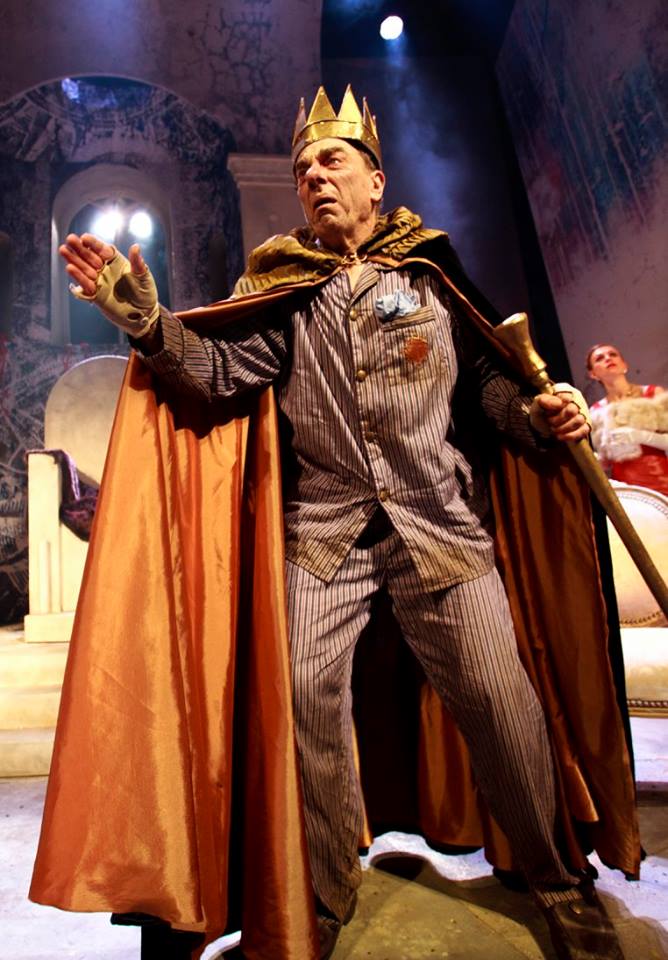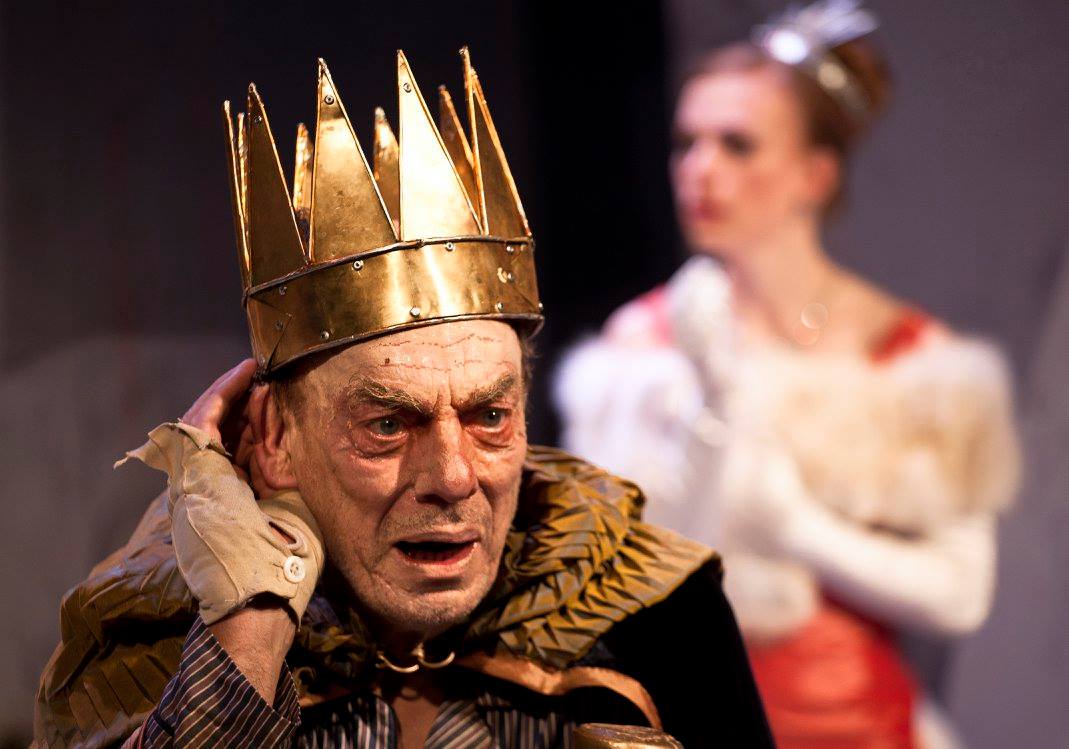Despite the author’s protestations that his plays are what they are, that is to say, not metaphors for something else, it is nonetheless difficult not to see Exit the King as just that.
In Ionesco’s list of the realities of life, death looms large. In Exit the King, which is like a panto for grown ups, set in a kind of crumbling Ruritania, designed by Anna Fleischle, we find king Berenger in the last hour and a half of his life. The play stands outside conventional time and space (indeed surreal) so aiming at (we might suppose) a universality of context.
The character of Berenger brings to mind Dylan Thomas’s poem, ‘Do not go gentle into that good night’, as he struggles and rails against his declining powers, powers which in taxonomy seem magical and superhuman. He arrogates the qualities and functions of a Pantheon of Greek gods and a fair collection of human achievements to boot.
Alun Armstrong, surely one of the finest character actors working today, is not an obvious choice for a declining king. His is a different kind of nobility, the nobility of Everyman, not the affected nobility of royalty and perhaps that was the thinking of director, Laurence Boswell, in casting Mr Armstrong, after all this is a play about that event which faces us all in the end. (One could make a case out for the end of royalty with its divine rights and all that – though Sartre’s complaint about Ionesco was that he wasn’t political). Nevertheless the portrait is convincing of a man losing everything he values. Moeover he has that ability to walk as an old man, not simply like an old man as the sands run out.
Siobhan Redmond’s Queen Marguerite, herself the practitioner of occult powers, sweeps around as a kind of midwife to death with a doctor (William Gaunt) on hand to see the process through as pre-ordained. Beth Park’s glamorous Queen Marie is a reminder of the earthly pleasures the king is about to forgo.
As with many an absurd play, we remember, not individual lines or characters but the thing as a whole. Peter Brook once observed that he couldn’t remember a single line from a production of Sartre’s Huis Clos he’d directed, whereas the play itself had gone into the culture as a metaphor for hell. As Ionesco said prior to a performance of another play, ‘A play cannot be explained or demonstrated, it must be acted.’ And that being the case it must be seen.
The play continues the season of high quality international theatre which is becoming the hallmark of the Ustinov under Laurence Boswell. ★★★★☆ Graham Wyles 25/11/14
Production photos by Simon Annand



